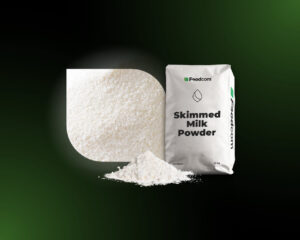Jedes Jahr baut China seine Position auf dem globalen Milchmarkt aus. Das Land ist ein bedeutender Milcherzeuger – 2019 rangierte China mit einer geschätzten Produktion von 31 Millionen Tonnen auf Platz 5 der größten Milcherzeuger, und im vergangenen Jahr belegte es mit 33 Millionen Tonnen des Produkts den vierten Platz. Die Nachfrage nach Milchprodukten wächst jedoch in hohem Tempo, und die chinesische Regierung setzt die Maßnahmen fort, die darauf abzielen, die nationale Produktion bis 2025 auf 45 Millionen Tonnen zu steigern.
Die aktuelle Situation
Der chinesische Milchsektor entwickelt sich rasch als Reaktion auf die enorm gestiegene Nachfrage nach Milch und Milcherzeugnissen. Um das ehrgeizige Ziel für die einheimische Produktion zu erreichen, muss China einige wichtige Probleme bewältigen. Gegenwärtig deckt die einheimische Produktion etwa 70 % des chinesischen Milchverbrauchs, doch die Produktionskapazität des Landes muss mit der kommenden Nachfrage Schritt halten. Chinas einheimische Produktion ist teuer und führt zur Abhängigkeit von internationalen Importen – im Jahr 2020 wird das Land 3,37 Millionen Tonnen Milchprodukte kaufen.
Wachsende Produktion
Einer der Faktoren, die für die hohen Produktionskosten verantwortlich sind, ist die Begrenzung des heimischen Tierfutters – die Hersteller müssen oft Getreide und Milchpulver importieren. Dennoch gibt es auch positive Trends in der chinesischen Milchwirtschaft. Obwohl die Gesamtzahl der Milchkühe voraussichtlich langsam von 6,15 Millionen im Jahr 2020 auf 5,94 Millionen im Jahr 2025 sinken wird, steigt die durchschnittliche Anzahl der Kühe pro Betrieb rasch an. Auch die Produktionskapazität wächst – 2017 lag der durchschnittliche Jahresertrag pro Kuh bei 4.600 Kilogramm, bis 2024 wird ein Anstieg auf über 5.500 Kilogramm erwartet.
Konsolidierung
In den letzten Jahren wurden die kleineren Betriebe mit bis zu einigen hundert Kühen von den größeren Unternehmen übernommen, die nun eine beeindruckende Herde von sogar zehntausenden von Milchkühen vorweisen können. Die größeren Unternehmen konnten sich besser an die sich entwickelnden Vorschriften anpassen und können dank des technologischen Fortschritts und des Fachwissens heute einen durchschnittlichen Tagesertrag von 30-40 kg des Produkts pro Kuh erzielen.
Modernisierung
Eine weitere Besonderheit der chinesischen Betriebe ist, dass die Arbeit selten automatisiert ist – die großen Melkkarusselle sind im Trend, während automatische Melksysteme eher selten sind. Das liegt daran, dass es in China viele Möglichkeiten gibt, Mitarbeiter in den Milchviehbetrieben einzustellen, und die Unternehmen nicht gezwungen sind, in technologische Unterstützung zu investieren. Allerdings setzen die Milcherzeuger zunehmend Mischrationen (TMR) als Futtermittel ein. Der Anteil der Hersteller, die die TMR-Technologie anwenden, ist zwischen 2008 und 2018 von 30 % auf 90 % gestiegen, was ein Zeichen für eine zunehmende Modernisierung ist.
Die Zukunft des chinesischen Milchmarktes
Jüngste Daten schätzen, dass die chinesische Milcherzeugung im Jahr 2021 34,5 Millionen Tonnen erreichen wird – ein Wachstum von 5 % gegenüber dem Vorjahr. In Großbetrieben wird der durchschnittliche Ertrag pro Kuh im Jahr 2020 voraussichtlich bei 8 Tonnen liegen. Für die Zukunft sagen Experten voraus, dass auf dem chinesischen Milchmarkt die Zahl der kleinen Betriebe weiter zurückgehen wird zugunsten von mehr Großbetrieben mit mindestens 3.000 Kühen. Es wird auch eine moderate Verlagerung hin zur Automatisierung erwartet, da die Urbanisierungstendenzen die Verfügbarkeit von Arbeitskräften einschränken könnten. Die chinesische Regierung wird die Landwirte weiterhin durch Hilfsprogramme und die Stärkung der einheimischen Marken unterstützen müssen.








